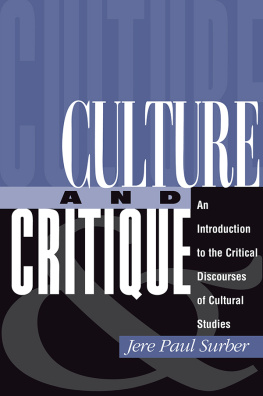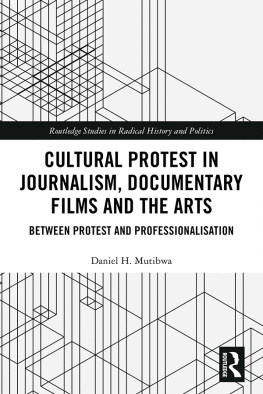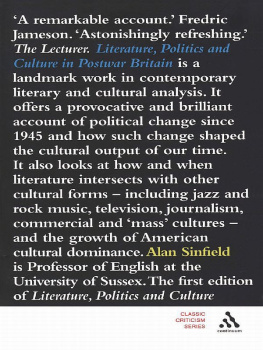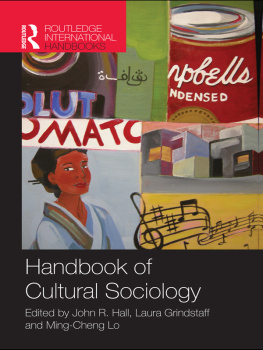Cultural Journalism and Cultural Critique in the Media
This book addresses a topic in journalism studies that has gained increasing scholarly attention since the mid-2000s: the coverage and evaluation of arts and culture, or what we term cultural journalism and cultural critique. The book highlights three approaches to this emerging research field: (1) the constant challenge of demarcating what constitutes the cultural in cultural journalism and cultural critique, and the interlinks of cultural journalism and cultural critique; (2) the dialectic of globalizations cultural homogenization and the specificity of local/national cultures; and (3) the need to rethink, perhaps even redefine, cultural journalism and cultural critique in view of the digital media landscape.
Cultural journalism is used as an umbrella term for media reporting and debating on culture, including the arts, value politics, popular culture, the culture industries, and entertainment. Therefore some of the contributions in this book apply a broad approach to the cultural when theorizing and analyzing the production and content of cultural journalism, and the professional ideology, self-perception, and legitimacy struggles of cultural journalists and editors. Other contributions demarcate their field of study more narrowly, both topically and generically, by engaging with very specific sub-areas such as film criticism or television series.
This book was originally published as a special issue of Journalism Practice.
Nete Nrgaard Kristensen is Associate Professor in the Department of Media, Cognition and Communication at the University of Copenhagen, Denmark. She has published extensively on arts and cultural journalism in a digital media landscape; lifestyle journalism; political journalism; and media, war, and conflict.
Unni From is Associate Professor and Director of the Centre for Journalism Studies at Aarhus University, Denmark. She has published on arts and cultural journalism; lifestyle journalism; television drama; and qualitative methodologies.
Journalism Studies: Theory and Practice
Series editor: Bob Franklin, Cardiff School of Journalism, Media and Cultural Studies, Cardiff University, UK
The journal Journalism Studies was established at the turn of the new millennium by Bob Franklin. It was launched in the context of a burgeoning interest in the scholarly study of journalism and an expansive global community of journalism scholars and researchers. The ambition was to provide a forum for the critical discussion and study of journalism as a subject of intellectual inquiry but also an arena of professional practice. Previously, the study of journalism in the UK and much of Europe was a fairly marginal branch of the larger disciplines of media, communication and cultural studies; only a handful of universities offered degree programmes in the subject. Journalism Studies has flourished and succeeded in providing the intended public space for discussion of research on key issues within the field, to the point where in 2007 a sister journal, Journalism Practice, was launched to enable an enhanced focus on practice-based issues, as well as foregrounding studies of journalism education, training and professional concerns. Both journals are among the leading ranked journals within the field and publish six issues annually, in electronic and print formats. More recently, 2013 witnessed the launch of a further companion journal Digital Journalism to provide a site for scholarly discussion, analysis and responses to the wide ranging implications of digital technologies for the practice and study of journalism. From the outset, the publication of themed issues has been a commitment for all journals. Their purpose is first, to focus on highly significant or neglected areas of the field; second, to facilitate discussion and analysis of important and topical policy issues; and third, to offer readers an especially high quality and closely focused set of essays, analyses and discussions.
The Journalism Studies: Theory and Practice book series draws on a wide range of these themed issues from all journals and thereby extends the critical and public forum provided by them. The Editor of the journals works closely with guest editors to ensure that the books achieve relevance for readers and the highest standards of research rigour and academic excllence. The series makes a significant contribution to the field of journalism studies by inviting distinguished scholars, academics and journalism practitioners to discuss and debate the central concerns within the field. It also reaches a wider readership of scholars, students and practitioners across the social sciences, humanities and communication arts, encouraging them to engage critically with, but also to interrogate, the specialist scholarly studies of journalism which this series provides.
Recent titles in the series:
The Places and Spaces of News Audiences
Edited by Chris Peters
Theories of Journalism in a Digital Age
Edited by Steen Steensen and Laura Ahva
Cultural Journalism and Cultural Critique in the Media
Edited by Nete Nrgaard Kristensen and Unni From
Journalism, Democracy and Civil Society in India
Edited by Shakuntala Rao and Vipul Mudgal
Cultural Journalism and Cultural Critique in the Media
This book addresses a topic in journalism studies that has gained increasing scholarly attention since the mid-2000s: the coverage and evaluation of arts and culture, or what we term cultural journalism and cultural critique. The book highlights three approaches to this emerging research field: (1) the constant challenge of demarcating what constitutes the cultural in cultural journalism and cultural critique, and the interlinks of cultural journalism and cultural critique; (2) the dialectic of globalizations cultural homogenization and the specificity of local/national cultures; and (3) the need to rethink, perhaps even redefine, cultural journalism and cultural critique in view of the digital media landscape.
Cultural journalism is used as an umbrella term for media reporting and debating on culture, including the arts, value politics, popular culture, the culture industries, and entertainment. Therefore some of the contributions in this book apply a broad approach to the cultural when theorizing and analyzing the production and content of cultural journalism, and the professional ideology, self-perception, and legitimacy struggles of cultural journalists and editors. Other contributions demarcate their field of study more narrowly, both topically and generically, by engaging with very specific sub-areas such as film criticism or television series.
This book was originally published as a special issue of Journalism Practice.
Nete Nrgaard Kristensen is Associate Professor in the Department of Media, Cognition and Communication at the University of Copenhagen, Denmark. She has published extensively on arts and cultural journalism in a digital media landscape; lifestyle journalism; political journalism; and media, war, and conflict.
Unni From is Associate Professor and Director of the Centre for Journalism Studies at Aarhus University, Denmark. She has published on arts and cultural journalism; lifestyle journalism; television drama; and qualitative methodologies.
First published 2017
by Routledge
2 Park Square, Milton Park, Abingdon, Oxon, OX14 4RN, UK
and by Routledge
711 Third Avenue, New York, NY 10017, USA






